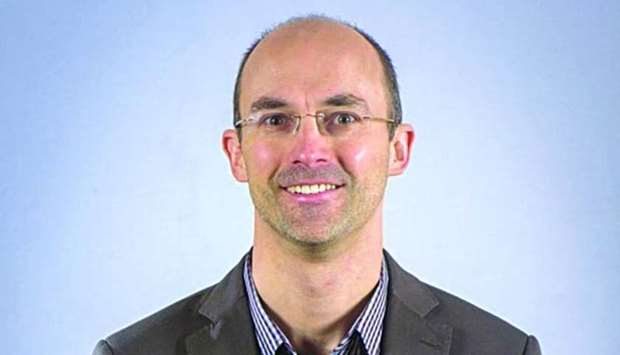Joint research by Dr Ingmar Weber of Qatar Computing Research Institute, part of Hamad Bin Khalifa University, and scientists from Oxford and Princeton universities, has won a Data2X Big Data for Gender Challenge Award from the United Nations Foundation.
The winners of the awards, which aim to explore how different methods of collecting and analysing big data can monitor gender gaps, were announced at an event at the UN General Assembly recently.
The research, Using Facebook Ad Data to Track the Global Digital Gender Gap, uses Facebook advertising data to identify countries with gender gaps in internet and mobile phone access in real time around the world. The technology then combines the Facebook data with offline statistics in areas such as Gross Domestic Product data or literacy rates, to make more accurate predictions about the number of women and girls using the internet, compared to men and boys.
The award includes a $50,000 grant, which is to be used to develop an automatically updating system to monitor gender gaps, in collaboration with Oxford University.
Dr Weber said the award was important as the grant would enable future research into improving the measures of data that could impact the empowerment of women and girls.
As an example of their findings combining both Facebook and offline information, Dr Weber and his scientist colleagues found that internet access is almost equal for men and women in Qatar with a ratio of 0.982, where 1.0 is equal access for both genders. (More than 90% of people living in Qatar have a Facebook account.)
As a comparison, the United States has a slightly higher ratio of 0.997.
The scientists’ findings of both countries’ gender gap ratios are similar to known “ground truths” in both countries.
However, the researchers were also able to use the Facebook data to predict gender gap ratios in countries where there is no existing data. They found that Rwanda, for instance, where there are no previous statistics, has a ratio of 0.671.
Dr. Weber’s project is a joint work with Ridhi Kashyap, a professorial fellow at Nuffield College, Oxford University and Masoomali Fatehkia, a student in Operations Research at Princeton University.
The research, Using Facebook Ad Data to Track the Global Digital Gender Gap, uses Facebook advertising data to identify countries with gender gaps in internet and mobile phone access in real time around the world. The technology then combines the Facebook data with offline statistics in areas such as Gross Domestic Product data or literacy rates, to make more accurate predictions about the number of women and girls using the internet, compared to men and boys.
The award includes a $50,000 grant, which is to be used to develop an automatically updating system to monitor gender gaps, in collaboration with Oxford University.
Dr Weber said the award was important as the grant would enable future research into improving the measures of data that could impact the empowerment of women and girls.
As an example of their findings combining both Facebook and offline information, Dr Weber and his scientist colleagues found that internet access is almost equal for men and women in Qatar with a ratio of 0.982, where 1.0 is equal access for both genders. (More than 90% of people living in Qatar have a Facebook account.)
As a comparison, the United States has a slightly higher ratio of 0.997.
The scientists’ findings of both countries’ gender gap ratios are similar to known “ground truths” in both countries.
However, the researchers were also able to use the Facebook data to predict gender gap ratios in countries where there is no existing data. They found that Rwanda, for instance, where there are no previous statistics, has a ratio of 0.671.
Dr. Weber’s project is a joint work with Ridhi Kashyap, a professorial fellow at Nuffield College, Oxford University and Masoomali Fatehkia, a student in Operations Research at Princeton University.

